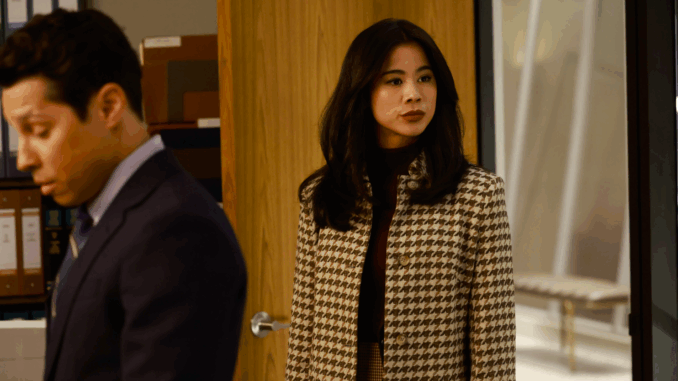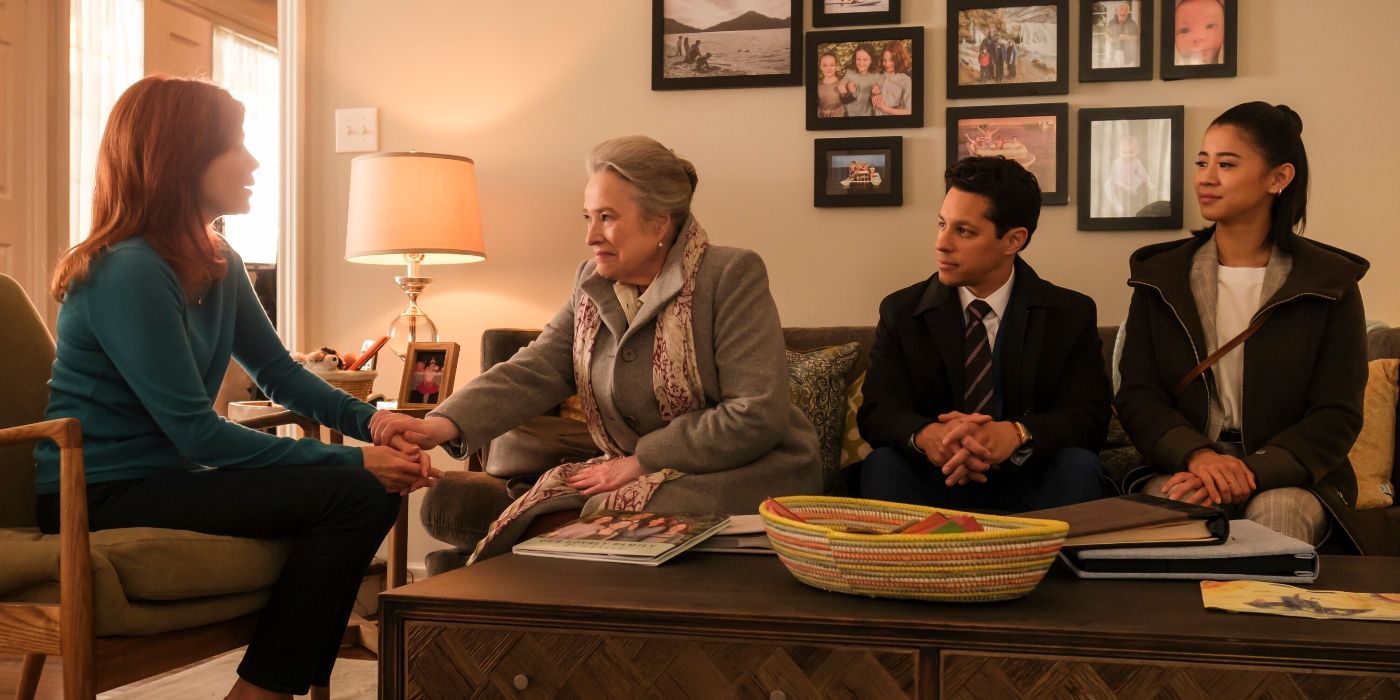
Familiar Formula, Fresh Perspective
For decades, courtroom dramas have offered viewers a satisfying mix of mystery, morality, and justice. From Perry Mason to the original Matlock, these shows followed a trusted structure: crime, investigation, twist, and verdict. CBS’s new Matlock, however, retains the bones of the genre while adding something modern and essential—moral discomfort.
Led by Kathy Bates as the formidable Madeline Matlock, the reboot doesn’t just ask “Whodunnit?”—it asks “Why did the system fail?” and “What happens after the verdict?” In doing so, it becomes more than just comfort TV. It’s relevant, resonant, and—at times—radically honest.
Modern Justice Isn’t Simple
One of the biggest shifts in the reboot is how it treats the law itself. The original Matlock often operated on a clear binary: Ben Matlock defended the innocent, exposed the guilty, and all was right in the end. But Madeline Matlock inhabits a different world—one where guilt and innocence are murkier, and the courtroom is a stage for deeper injustice.
In the premiere episode, Matlock defends a woman accused of embezzlement at a nonprofit. While the evidence is thin, Matlock uncovers a larger scandal involving corporate manipulation of social programs. The courtroom scenes still bring the satisfying logic of classic procedural drama, but they also spotlight power imbalances and legal loopholes that hurt the vulnerable.
Madeline Matlock Isn’t There to Comfort You
Kathy Bates plays Madeline with quiet intensity. She doesn’t coddle juries or sugarcoat her beliefs. In one episode, she opens her closing argument by telling the jury, “You may not like my client. I don’t like him either. But liking isn’t the law.” It’s a line that captures the essence of the show—this isn’t a morality play about good and evil. It’s about whether justice is truly being served.
Her Matlock is flawed, strategic, and sometimes disillusioned. But that makes her real. In a legal system increasingly criticized in real life, Madeline’s discontent feels timely. She doesn’t preach. She acts. And her actions ripple beyond the courtroom.
Cases That Mirror the Headlines

Where earlier courtroom dramas were content with fictional crimes in a vacuum, the new Matlock leans into stories that reflect ongoing societal debates. One episode addresses voter suppression. Another tackles the legal gray areas of artificial intelligence and surveillance. There’s even an arc involving a prison system accused of forcing inmates into unpaid labor under the guise of “rehabilitation.”
These aren’t just gimmicks to stay trendy. The writers treat each issue with nuance and restraint. No episode ends with a perfect resolution. Instead, Matlock often wins the case—but loses the moral battle. And that realism sets it apart.
Comfort in the Characters, Not the Outcome
Despite its heavier themes, Matlock still delivers the structure that keeps legal drama fans coming back. The investigations are smart. The courtroom confrontations are riveting. The side characters—especially associates Julian, Olympia, and Billy—bring emotional warmth and light humor.
But the comfort comes from familiarity, not simplicity. You trust that Matlock will uncover the truth. You don’t always trust that truth will win.
In one standout case, a whistleblower sues a pharmaceutical giant for suppressing fatal trial data. Matlock exposes the cover-up, but the case ends in a mistrial due to jury tampering. It’s devastating—and hauntingly close to real headlines. But in the show’s final scene, Matlock encourages the whistleblower to try again. “Justice is patient,” she says. “You just have to be more patient than injustice.”
Why It Works for 2025 Audiences
There’s a growing demand for entertainment that entertains without insulting our intelligence. Shows like Succession, The Good Fight, and The Bear have proven that audiences are willing to wrestle with moral ambiguity. Matlock enters that arena while keeping the familiarity of network structure—episodic cases, contained arcs, a consistent tone.
In this reboot, CBS has built a bridge between two eras: the golden age of courtroom television and today’s hunger for substance. It’s not flashy. It’s not cynical. It’s something rarer: a smart show that believes justice still matters—even if it’s harder to come by.
A Courtroom That Reflects the Real World
The courtroom on Matlock isn’t just a set—it’s a reflection of the world outside it. That’s why it resonates. It doesn’t pretend the law is perfect. It doesn’t pretend Madeline Matlock can fix it all. But it shows what it means to care enough to keep trying.
And in a media landscape full of noise, that’s more than comforting. It’s necessary.